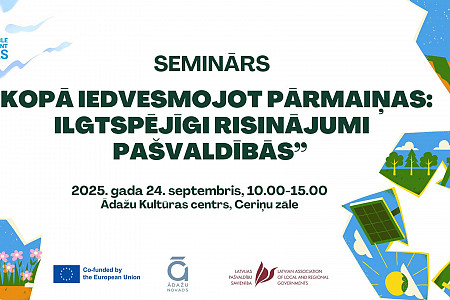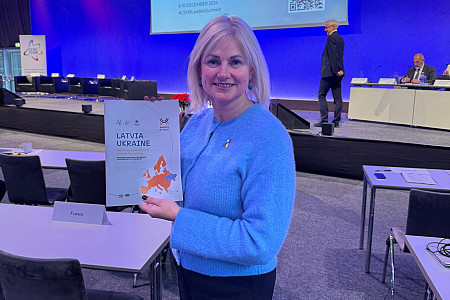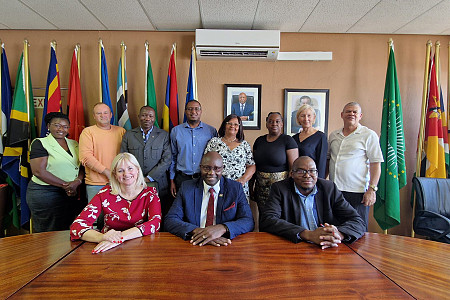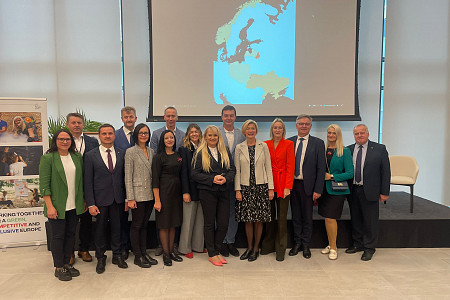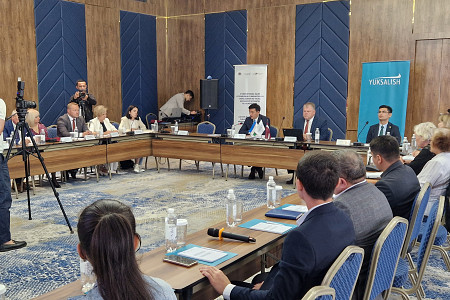On 17 September in Tashkent (Uzbekistan) during the final conference of the project “Sustainable policy planning in the field of climate change mitigation and adaptation in Uzbekistan” the “Guidelines for integrated climate change and disaster risk reduction management for local communities and decision-makers in Uzbekistan” were presented.
The two-year project has been implemented by the Latvian Association of Local and Regional Governments in cooperation with the Uzbekistan’s Nationwide movement “YUKSALISH” since 2023, and it is funded by the Ministry of Foreign Affairs of the Republic of Latvia from development cooperation budget. Its aim is to improve Uzbekistan's sustainable policy planning in the field of climate change by strengthening the capacity of local communities, raising public awareness of the socio-economic impact of climate change and promoting public involvement in decision-making.
The brochures are printed in Uzbek and Russian languages and are also available online for anyone interested in the topic. The guidelines are intended primarily for local communities and decision makers, but can also be used at regional and national levels. They describe disaster risk reduction methods that can be used in the climate change risk assessment process.
“Climate change affects not only one municipality, one country or even one continent. It is a challenge for the whole world, so we are proud that the experience of Latvian local authorities is useful in shaping Uzbekistan's climate change adaptation policy. Every action we implement, no matter, if it is big or small, contributes to global policy and further meaningful activities. People are and will be the main focus, so adaptation to climate change is an important step towards a healthy, prosperous and happy humanity. We very much hope that the results of the project will be the beginning of wider actions in the field of adaptation to climate change not only in Uzbekistan, but also in the entire Central Asian region,” during the final conference concluded the Chairman of the Latvian Association of Local and Regional Governments, Mr Gints Kaminskis.
The foreseen impact on climate is not the same in all the regions of Uzbekistan, thus there is no single approach to climate change mitigation and adaptation appropriate for every single community. The guidelines offer tools for decision makers to assess local climate risks and prepare adaptation actions tailored to local conditions. The target areas of the project - Bukhara and Surkhandarya regions - serve as an example for other regions and communities of Uzbekistan in preparing climate change adaptation plans that set priorities and provide recommendations for planning adaptation measures.
The implementers of the project have gladly concluded that the activities have contributed to the preparation of local communities for the risks caused by climate change, as well as succeeded the planning of adaptation measures at local and national level. Based on the methodical materials and recommendations developed by the project’s experts, extensive trainings were organized for the inhabitants of the ecologically disadvantaged regions of Uzbekistan.


